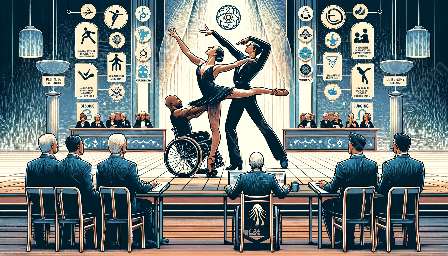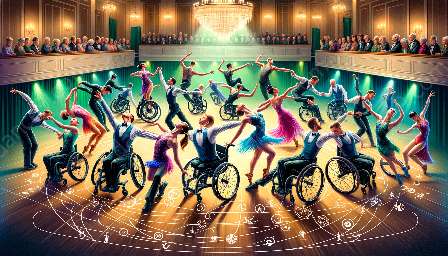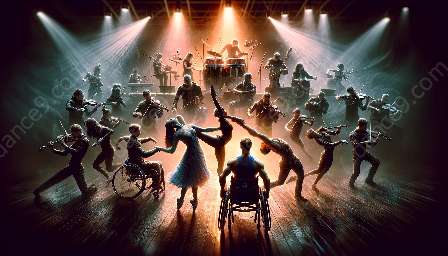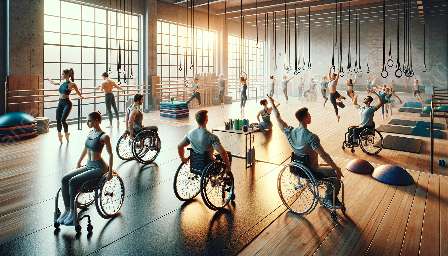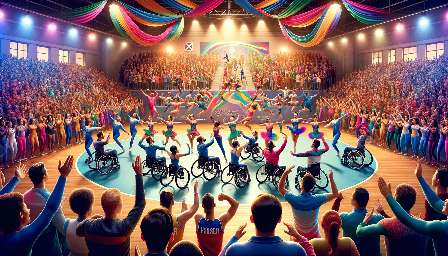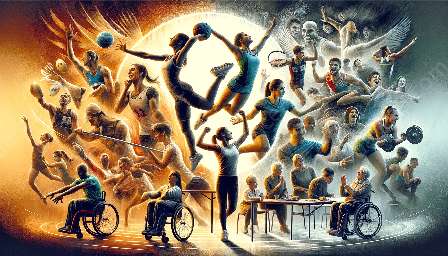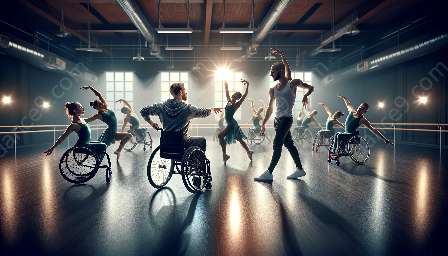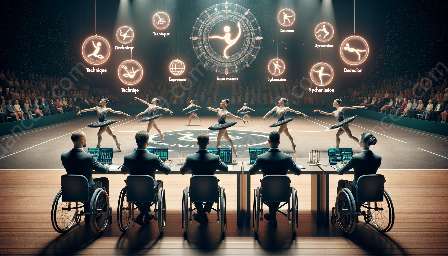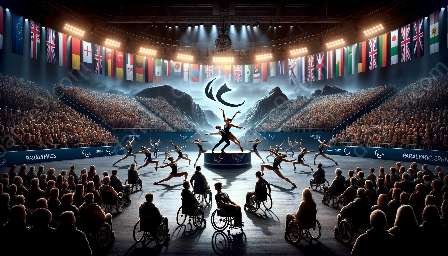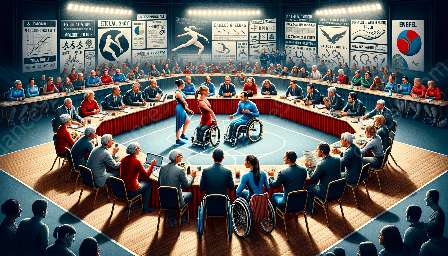Para dance sport is an exhilarating and challenging athletic pursuit that demands not only physical prowess but also a deep understanding of the psychological nuances related to dance and performance. In this article, we will delve into how the application of dance psychology concepts can significantly enhance the training and conditioning for para dance sport athletes, enabling them to achieve peak performance and compete at the highest levels, such as the World Para Dance Sport Championships.
The Role of Dance Psychology in Training and Conditioning
Dance psychology encompasses the mental, emotional, and cognitive aspects of dance that influence an athlete's performance. When it comes to para dance sport, the application of dance psychology concepts can play a pivotal role in optimizing training and conditioning programs. By understanding and addressing the psychological factors that impact an athlete's performance, coaches and trainers can tailor their approach to enhance the overall effectiveness of the training regimen.
1. Motivation and Goal Setting
One of the fundamental principles of dance psychology is the importance of motivation and goal setting. In the context of para dance sport, athletes face unique challenges that can affect their motivation, such as physical limitations and societal perceptions of disability. By incorporating motivational strategies and helping athletes set meaningful and achievable goals, trainers can instill a sense of purpose and drive that fuels their dedication to training and conditioning.
2. Confidence and Self-Efficacy
Confidence and self-efficacy are integral components of athletic performance, and they are particularly relevant in para dance sport. Dance psychology emphasizes the development of self-confidence and belief in one's ability to overcome obstacles and succeed. Through techniques such as visualization, positive self-talk, and performance feedback, trainers can bolster the confidence and self-efficacy of para dance sport athletes, enhancing their readiness for competitions like the World Para Dance Sport Championships.
3. Stress Management
The mental and emotional demands of para dance sport require athletes to effectively manage stress and anxiety. Dance psychology offers a range of stress management techniques, including relaxation exercises, mindfulness practices, and mental rehearsal, which can help athletes alleviate performance-related stress and maintain a focused, composed mindset during training and competition.
Implementing Dance Psychology Concepts in Training Programs
Integrating dance psychology concepts into training and conditioning programs for para dance sport requires a holistic and tailored approach that aligns with the unique needs of athletes with physical disabilities. Trainers and coaches can consider the following strategies to effectively apply dance psychology principles:
- Individualized Support: Recognizing the diverse psychological profiles of para dance sport athletes and providing personalized support that addresses their specific motivational, confidence, and stress management needs.
- Collaboration with Psychologists: By partnering with sports psychologists specializing in dance, trainers can leverage expert guidance to develop and execute customized psychological training components within the overall program.
- Education and Awareness: Raising awareness among athletes, coaches, and support staff about the role of dance psychology in performance enhancement and advocating for its integration into training and conditioning methodologies.
Preparing for the World Para Dance Sport Championships
The World Para Dance Sport Championships serve as the pinnacle of competition for para dance sport athletes, showcasing their exceptional skill, artistry, and determination. To excel at this prestigious event, the application of dance psychology concepts becomes even more critical in ensuring athletes are mentally and emotionally prepared for the challenges they will encounter.
1. Mental Preparation
Prior to the championships, athletes can benefit from comprehensive mental preparation exercises, including visualization of their routines, mental imagery of successful performances, and the development of pre-performance routines that optimize their mental state before taking the floor.
2. Embracing Adversity
A central tenet of dance psychology is the ability to embrace adversity and channel it into personal growth and resilience. Given the competitive nature of the World Para Dance Sport Championships, athletes can draw upon psychological principles to approach setbacks, pressure, and high-stakes situations with a resilient mindset.
3. Team Dynamics
For para dance sport pairs and teams, the dynamics of collaboration and synchronization are essential elements that can be enhanced through an understanding of interpersonal communication, trust-building, and shared mental frameworks, all of which are within the realms of dance psychology expertise.
Conclusion
In conclusion, the integration of dance psychology concepts into training and conditioning programs for para dance sport represents a significant opportunity to elevate the performance, well-being, and competitive readiness of athletes. By prioritizing motivation, confidence, stress management, and mental preparation, trainers and coaches can cultivate a more comprehensive and holistic approach to athlete development. As para dance sport continues to gain recognition and participation worldwide, the application of dance psychology will undoubtedly play a vital role in shaping the future of the sport and fostering the success of athletes at events like the World Para Dance Sport Championships.


